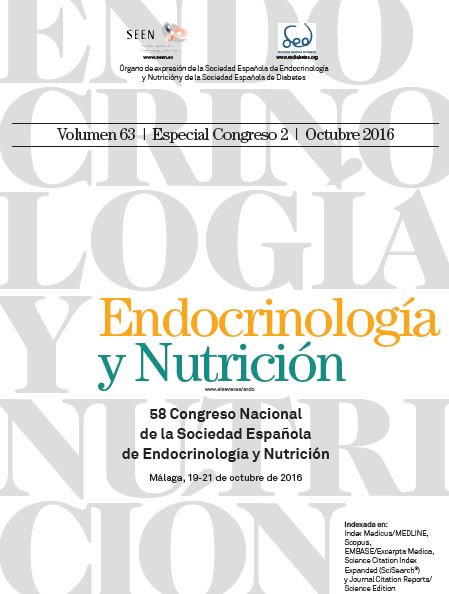301 - UNUSUAL RECURRING CUSHING DISEASE
Serviço de Endocrinologia. Hospital Santa Maria. Lisboa. Portugal.
Introduction: Cushing disease is the most common form of endogenous hypercortisolism and rare variants are being increasingly recognized.
Case report: ASB is a Caucasian registered nurse, aged 29, single. After a stressful life event she developed subclinical hypercortisolism with headaches, weight gain and oligoamenorrhea. ACTH (pg/mL RV 0-46)/cortisol (μg/dl RV 12-25) were obtained at 8h, 19h and 24h: 48/20, 36/14 and 32/14; 24h urinary cortisol was 1059 μg (RV < 285); ACTH/cortisol at 8.00h after dexamethasone 1.0 mg at 24h previous night were 17/9. Low (0.5 mg) and High (2.0 mg) doses dexamethasone quid for 48h and 96h were given sequentially with ACTH/cortisol at 48h of 46/15 and at 96h 12/1. The CRH test (100 μ ev) was performed with ACTH/cortisol values at 0,5,10,15,30,60 and 120 min as follows: 44/32, 39/29, 42/28, 47/29, 57/31. A pituitary lesion 19 × 13 mm hipointense in T1 and T2 with thickening of the infundibulum was found by NMR. The transphenoidal route was used to remove a macroadenoma with positive staining for ACTH and a Ki67 index < 3%. Six months later, clinical complaints persisted with 8.00h cortisol after dexamethasone 1.0 mg of 23. NMR revealed no pituitary lesion although the infundibular thickening persisted. Somatostatin analog 20 mg, im monthly was attempted and was unsuccessful. The patient is now being treated with cabergoline 0.25 mg, twice a week.
Discussion: This is an unusual Cushing disease because of: 1. Subclinical presentation; 2. Maintained circadian rhythm of cortisol secretion; 3 - no ACTH response after CRH; 3. Pituitary macroadenoma hipointense in T1 and T2 with infundibular thickening; 4. Persistence after surgical removal of the adenoma; 5. Negative octreoscan. These data suggest an intermediate lobe lesion.





